Emma O’Neill: What It Means To Be Truly Organic In Your Gardening Approach

Contributions From EMMA O'NEILL
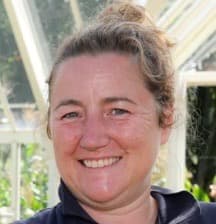
Emma O’Neill is a Head Gardener and manages a team of two and many more volunteers at Garden Organic. Emma is a graduate of the University of Worcester and has achieved her NVQ Level 2 in Horticulture. She has been working as Head Gardener at Garden Organic for 7 years.
Emma O’Neill is the Head Gardener at Garden Organic, an organisation set up with the aim of encouraging more gardeners to garden in a more sustainable and eco-friendly way.
In her role, Emma is responsible for managing and caring for the garden, leads garden tours, and marshals a dedicated group of volunteers every week.
I spoke with Emma about all things Garden Organic – what it means to be truly organic in your gardening approach and the type of work gardeners should be doing right now.
Please note that imagery in this guide has been provided with permission by Emma O'Neill.
Watch the full conversation between Mollie Brown and Emma O’Neill here:
Can you share a little bit about your background into horticulture and how you then came to work with Garden Organic?
“I started studying in 2000 after I realised that I actually preferred to be outdoors, so I left my job in finance and went and did the NVQ Level 2 at a local college,” shares Emma.
“This job came up, it was in a slightly different form at the time, they had actually contracted out the gardens, so I applied to the contractor to be the Head Gardener here.
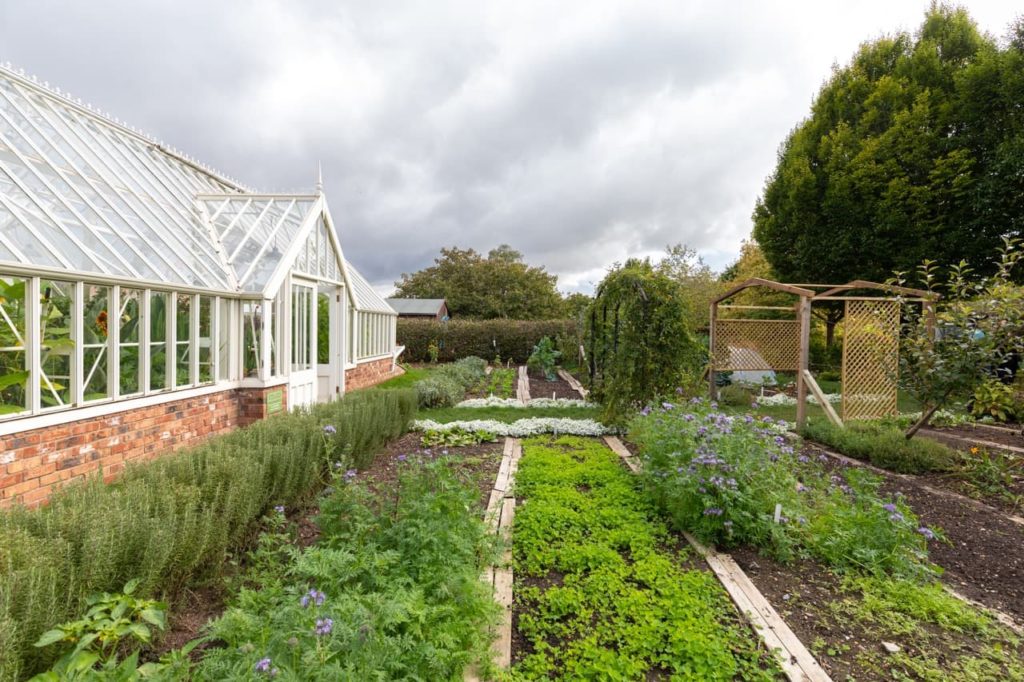
“One of the reasons I wanted to come was because I visited here when I did some further studying with Perthshire College, and it was sort of the beacon for organic gardening at the time.
“It had been through quite a lot of changes and a reduction in staff, so it looked like a really challenging opportunity – and so I took the job!”
For Those Who Might Not Know, What Kind Of Work Does Garden Organic Do? What Is The Whole Project About?
“In a nutshell, its main purpose is to get as many people gardening organically as possible and they do that in a number of ways,” she shares.
“Not only have we got the demonstration garden, we also conduct citizen science and research. We’ve got the Heritage Seed Library here, which is really important as that holds the National Collection for Heritage Vegetables.
“We’ve also got lots and lots of community projects going on and composting is a cornerstone of that, so it’s quite a wide-reaching organisation.”
Can You Explain A Little Bit About What It Means To Garden Organically?
“Most people would say it’s about not using synthetics or chemicals, such as pesticides or herbicides, but it’s more than that really.
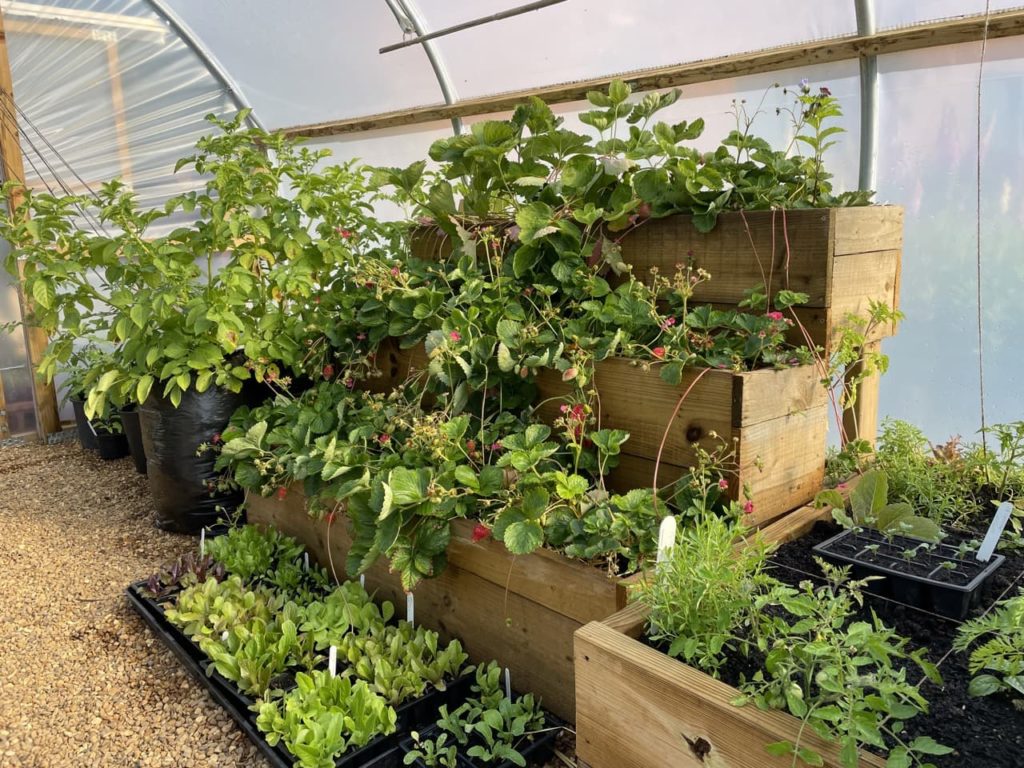
“It’s trying to work with your soil, so seeing that as a living, breathing thing and helping keep that healthy. And the main thing is if the soil’s healthy, the plants are going to be healthy, so it’s key to get that aspect right.
“Also, it’s about using fertilisers and feeds that are from plant-based origins, as opposed to synthetics.”
Can You Explain A Little Bit About Your Role At Garden Organic?
“I only have two actual employees here at the moment and the garden has changed a lot as it got rebuilt during the pandemic,” Emma explains.
“It consists of a potager, an ornamental garden and it also holds the National Comfrey Collection, a title we’ve just managed to obtain from Plant Heritage. Then, we’ve got our working area, where I manage a team of roughly 15 volunteers that come in Tuesdays, Wednesdays or Thursdays, and we couldn’t do it without them.
“I manage the garden, so I do get stuck in and am very hands-on. I’m always trying to keep abreast of what’s new in horticulture. We grow as much as we can ourselves, so all of our veg is always grown from seed, mainly from the Heritage Seed Library.”
What Kind Of Jobs Are You Doing At The Moment In The Garden At Garden Organic?
“We’re doing a lot of planning, so it’s always a great opportunity as things quieten down, even though it’s never that quiet!” she jokes.
“When planning, you want to think about what went well, what didn’t go well, if you want to try other things. We also order our seeds at this time of year and will be planting some of our spring bulbs, such as daffodils.
“We tend to turn our compost heaps around this time too, as we do that once a month. The more often you turn them, the quicker they’re going to decompose.
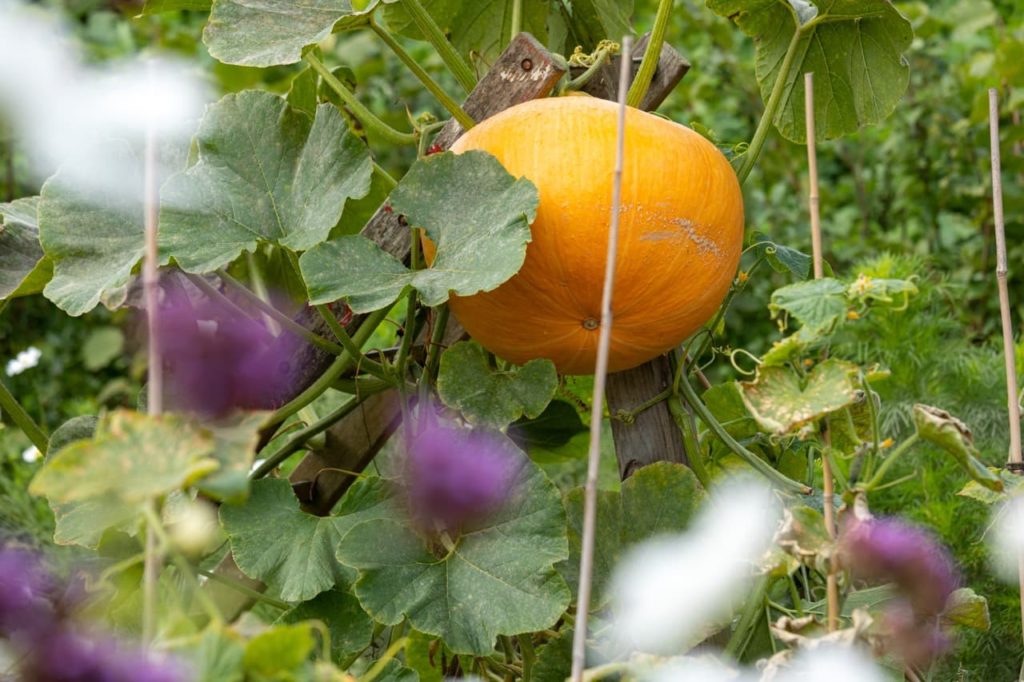
“Soon, we will get to that stage where we will be cutting things down. We do try to leave as many things that are useful as possible. Anything that looks architecturally attractive will get left on, so that’s things like global artichokes.
“Anything that produces seeds for birds or other wildlife or plants that provide great habitat get left too, for example, our grasses. But anything that really doesn’t have what I consider a specific purpose, we will then be cutting those down now.”
Do You Have Any Exciting Projects Coming Up For The Garden Organic That You’d Like To Share?
“I mentioned earlier we’ve just been awarded the National Comfrey Collection, so we’re going to be doing lots more signage to do with that and will hopefully be getting more of those plants to widen the collection,” explains Emma.
“We’re hoping to build another show garden this year, as we did one last year at Gardeners’ World Live in Birmingham, so we’re hoping to do that again this year.
“One of the other things that’s probably the most important thing that’s happening is that our Heritage Seed Library will be publishing their new seed list soon. So, if anybody wants to get their hands on some heritage veg, go to the website and sign up as a member and then you can get some seeds!”
What’s One Piece Of Gardening Advice That You Would Give To Your Younger Self?
“Patience,” she says simply.
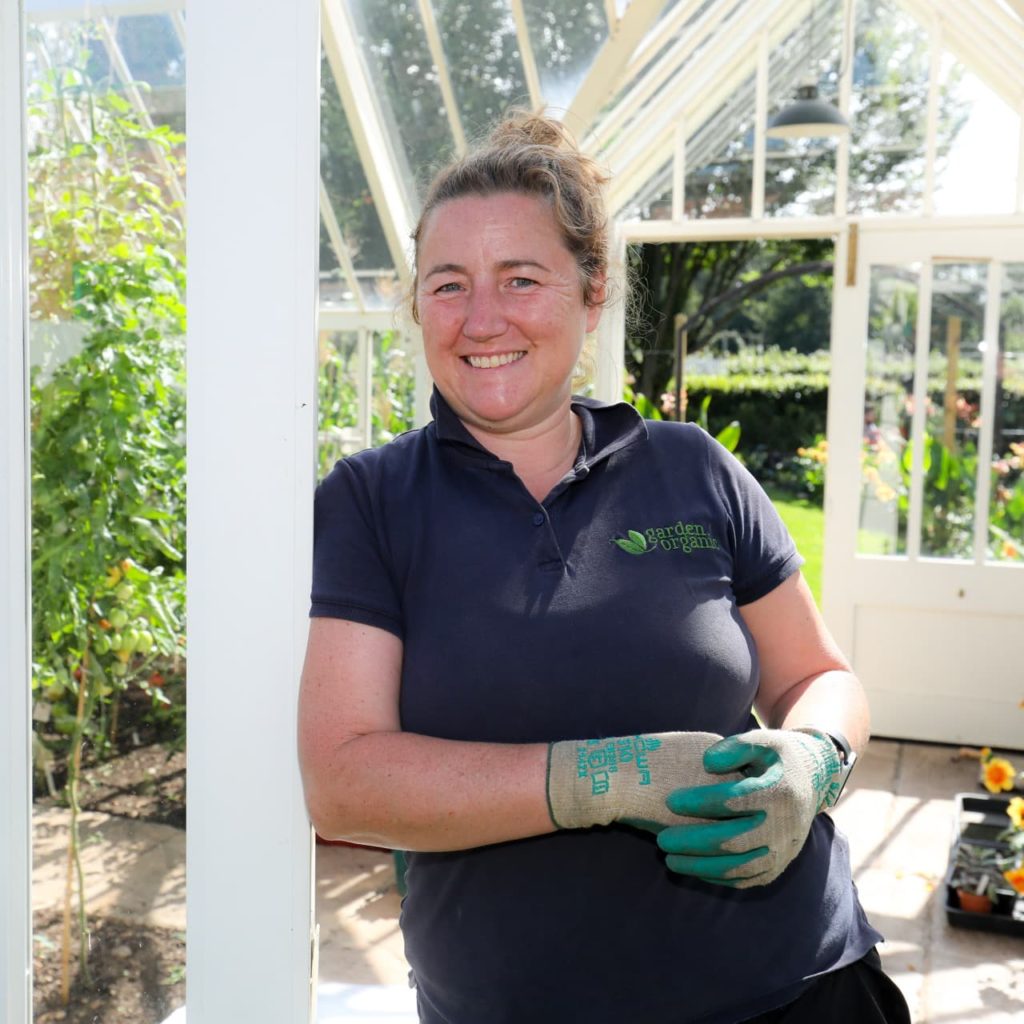
“I’m impatient. I remember when I first started, I sowed some carrots according to the packet and these carrots did nothing, and I remember phoning up my tutor and saying: ‘I’m terrible, I’m going to get the sack’!
“He said you need to get more in tune with the weather. It’s too cold, so they’re not going to grow, and also you need to be more patient. And that’s what I’ve learnt that sometimes, there’s no such thing as instant gardening.”

